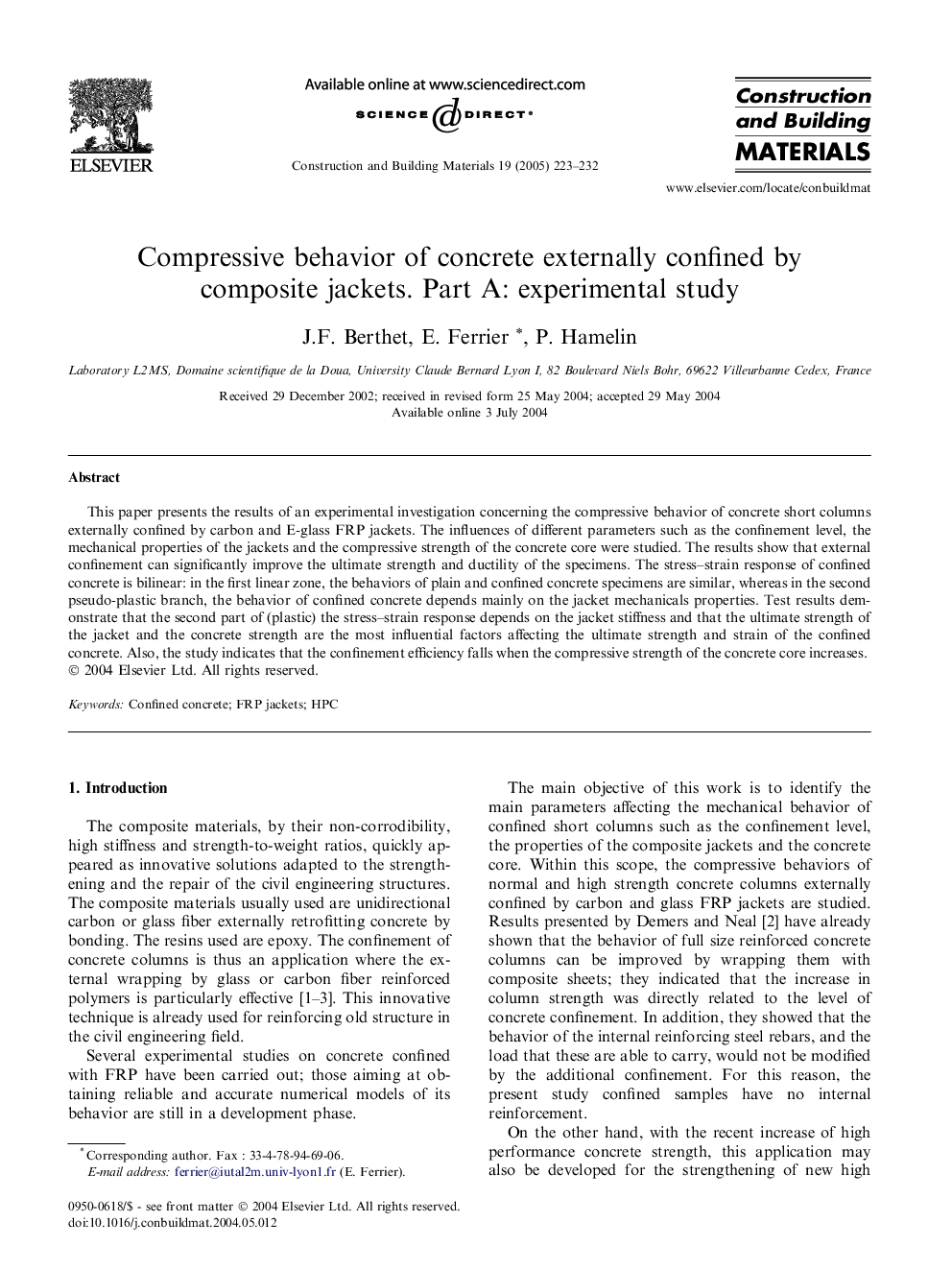| Article ID | Journal | Published Year | Pages | File Type |
|---|---|---|---|---|
| 10285560 | Construction and Building Materials | 2005 | 10 Pages |
Abstract
This paper presents the results of an experimental investigation concerning the compressive behavior of concrete short columns externally confined by carbon and E-glass FRP jackets. The influences of different parameters such as the confinement level, the mechanical properties of the jackets and the compressive strength of the concrete core were studied. The results show that external confinement can significantly improve the ultimate strength and ductility of the specimens. The stress-strain response of confined concrete is bilinear: in the first linear zone, the behaviors of plain and confined concrete specimens are similar, whereas in the second pseudo-plastic branch, the behavior of confined concrete depends mainly on the jacket mechanicals properties. Test results demonstrate that the second part of (plastic) the stress-strain response depends on the jacket stiffness and that the ultimate strength of the jacket and the concrete strength are the most influential factors affecting the ultimate strength and strain of the confined concrete. Also, the study indicates that the confinement efficiency falls when the compressive strength of the concrete core increases.
Keywords
Related Topics
Physical Sciences and Engineering
Engineering
Civil and Structural Engineering
Authors
J.F. Berthet, E. Ferrier, P. Hamelin,
